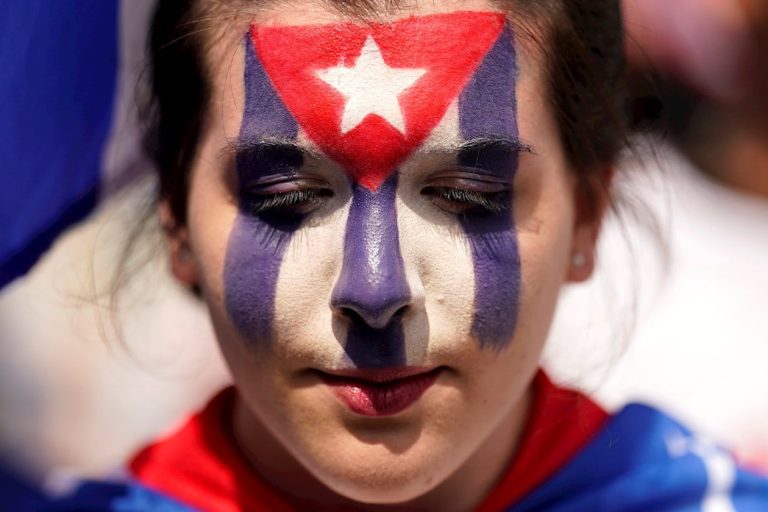31 de julio 2021

Children of Exile: The Births “Sowing Hope” in the Camp of Nicaraguan Farmers

PUBLICIDAD 1M
PUBLICIDAD 4D
PUBLICIDAD 5D
That uncritical support for the perpetuation of Ortega’s rule in Nicaragua is also reverse colonialism

Two weeks ago, Jovenal Moise, the Haitian president, was gunned down in his own home. A short while later, it was revealed that the leader’s assassination had been carried out by a group of twenty-six former members of the Colombian military. As soon as this news was made known, a number of media outlets affiliated with the Venezuela led Bolivarian geo-political bloc, that includes Cuba, Bolivia and Nicaragua, concluded that the Colombian government was behind the killing.
To suggest or affirm that Bogota was involved, despite the Duque government’s expedited support for the investigation of the killing, implies that Colombia’s main international ally, the United States – specifically the Biden administration – was also behind the crime. In other words, Moise – who had maintained excellent relations with Donald Trump – was another victim of Yankee imperialism.
It was quickly learned that five Haitians, who were involved in planning the assassination, were among the fugitives. One was an official from the Haitian Ministry of Justice, whose whereabouts remains unknown. Another, currently under arrest, was nothing less than the Head of Security for the Presidential Palace. These two, plus a Haitian exile with presidential aspirations, were the brains of the operation.
The instinct to overlook the possibility of a plot rooted in Haiti’s internal struggle, and to transfer all responsibility to foreign powers like Colombia or the United States, could be termed reverse colonialism. Media outlets that bill themselves as guardians of anticolonialism are unable to admit that there are national political figures in Haiti fully capable of engaging in such a fight for power.
Nicaragua, another country in the region, has been the scene of a massive roundup of leaders of civil society and opposition organizations. The same Bolivarian press that points the finger at Bogota and Washington in the case of the Moise assassination, covers up or justifies the imprisonment of dozens of peaceful members of the opposition under national security laws that closely resemble those of the right-wing dictatorships during the cold war.
On what do they base their support of Ortega? Essentially, on the idea that the Ortega government – I’ll avoid calling it Sandinista – is a victim of the United States. They allege this even though it’s not under a commercial blockade like the one Cuba suffers, and, historically, Nicaragua has had very good relations with the International Monetary Fund and the World Bank. The sanctions against Nicaragua were levied more recently; although they’re as much an error as those of Cuba and Venezuela, they don’t legitimize the repression.
That uncritical support for the perpetuation of Ortega’s rule in Nicaragua is also reverse colonialism. It’s based on the idea that, without Ortega, Nicaragua would go back to being a colony of the United States. The general will of Nicaraguans, according to this view, is personified in the leader, and any alternative is assumed to be anti-national and a proponent of Washington’s domination. By viewing ideology as superseding geopolitics, the Bolivarian left ends up reproducing the purely colonial idea that there’s no internal political life in the Caribbean and Latin American nations.
Yet another scenario of reverse colonialism is taking place right now in Cuba. Two weeks after the social explosion in dozens of towns and cities on the island, the Cuban government and its allies maintain that the “disturbances” were a new coup attempt on the part of Washington. This, although the demonstrations were provoked by a series of concrete causes, as confirmed by the country’s best economists and sociologists. These included new waves of COVID-19, shortages of medicine and food, loss of buying power, and of course, the tightening of US sanctions.
Such an analysis implies that neither the thousands of Cubans who went out on the streets, nor the many intellectuals, artists or leaders of civil society that reject the repression, can be considered autonomous subjects. None have any criteria of their own, they merely repeat the gestures produced by the ventriloquists of the empire and its algorithms. Therefore, the Cuban reality is overshadowed by its dispute with the United States. If so, then Cuba continues to be a colony.
*This article was originally published in the web magazine La Razon, under the title “Scenes of reverse colonialism” and translated by Havana Times.
Archivado como:
PUBLICIDAD 3M
Historiador y ensayista cubano, residente en México. Es licenciado en Filosofía y doctor en Historia. Profesor e investigador del Centro de Investigación y Docencia Económicas (CIDE) de la Ciudad de México y profesor visitante en las universidades de Princeton, Yale, Columbia y Austin. Es autor de más de veinte libros sobre América Latina, México y Cuba.
PUBLICIDAD 3D